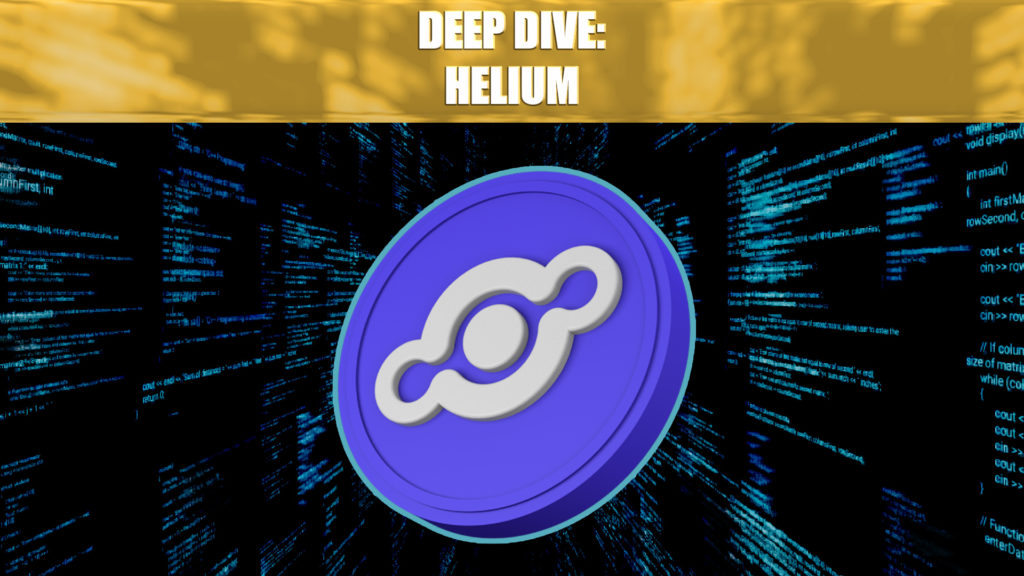Deep Dive: Helium | Dec 11, 2021

You can follow Crypto Daily wherever you get your podcasts by clicking here.
It’s been a little while since I have talked about a token, so this week I decided to do a deep dive on Helium — which is still smaller, but doing very well.
Helium is a very unique network because it is taking advantage of our need for the internet of things devices.
The Helium network is often referred to as the people’s network because its goal is to create a decentralized and trust-less model for building wireless infrastructure.
This network is a unique combination of blockchain, WiFi, and Long Range Wide Area networks that Helium calls LongFi.
The network is also a proof-of-work blockchain — which means it does require hardware to mine their native token. However, unlike Bitcoin or Ethereum, the mining hardware uses very little energy.
You mine by having special routers you connect to your modem, which give our special license-free long-range radio signals to devices.
The hardware is specially made, and unfortunately, you can’t use just any wifi router. They are also in high demand.
In fact, I ordered one from Bobcat miners back in early June and I am still waiting for mine to ship out — hopefully, any day now.
What makes these hotspots so special is how much coverage they give off. Depending on how high up your antenna is, it might even cover several miles.
You are rewarded for providing these hotspots when applications transfer data in a region of the network that the hotspot is managing — which they also refer to as a Proof-of-Coverage algorithm.
Because of this, Helium doesn’t require a miner to burn a certain amount of energy to prove its work. Instead, it provides the network with certain challenges to see if the hotspot network you are providing can meet these challenges and offer you tokens in return.
Helium is also dependant on other networks witnessing the event. So if you are in an area with other Helium hotspots and your network witnesses one of these challenges — you are also rewarded.
So creating a network mesh with other miners is encouraged and helpful — since you aren’t competing against each other to earn a token. You’re all working together.
Proof-of-coverage is not the only way you will get rewarded, though. You also get rewarded if a user or device actually uses the network that you are providing.
This helps with the progress of IoT devices, that keep us all connected. Sometimes it’s for safety, sometimes it’s for fun. Some examples of companies taking advantage of the helium network are:
InvisiLeash, which are affordable pet collars that ensure pets are never lost
SmartMimic, which is for Occupation Health, Social Distance Tracking, and Contact Tracing
Digital Matter, a GPS Tracking device for trailers, fleet, tools, and indoor assets
SalesForce, who allow access to networked resources with a simple swipe of a user’s badge
And Lime, which rents things from Skateboards to Cars. Helium helps track their devices wherever they end up
When these devices use the network, they are required to burn Helium Tokens in order to use the network, sort of like a service fee. This burning also helps to control the supply of tokens so tokens can retain their value.
Which, by the way, is continually going up lately.
If you are interested in mining yourself, there are currently four main companies building miners:
Bobcat
Nebra
SynchroB.it
Cal-Chip
Of course, Helium is playing an important role in the development of Web 3.0 where we are all able to remain connected when we want, where we want, through the use of shared community internet.



